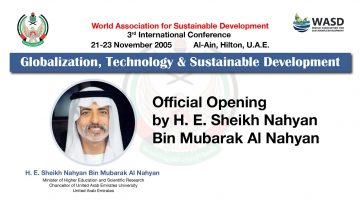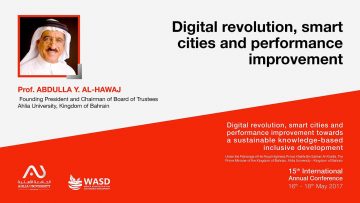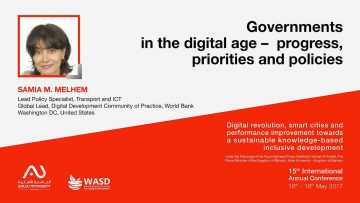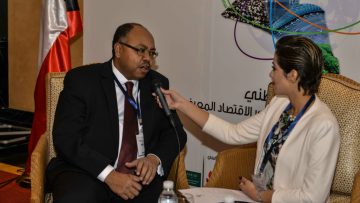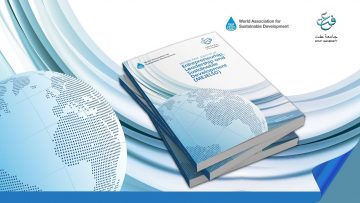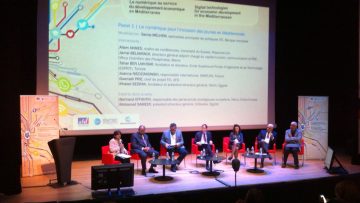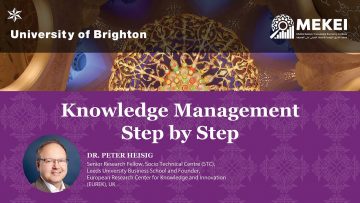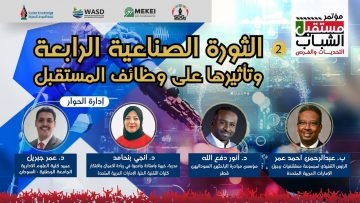(79) E-learning and the Digital Divide Role in Transforming Higher Education in Sudan: An Exploratory Case Study Analysis, Dr. Omer Gibreel, Dr. Mohamed Mahdi, Dr. Ali Saeed
Dr. Omer Abdelhamid Gibreel
Dean of Administrative Science, National University, Sudan, Researcher and Mentor, Clinton Global Initiative University (CGIU)
Seoul Republic of Korea
Email: omer.gibreel@gmail.com
Dr. Mohamed Abdelghadir Mahdi
Associate Professor of Clinical Chemistry, Dean, Faculty of Medical Laboratory Sciences, National University
Sudan
Dr. Ali Awadallah Saeed
Vice Dean, Faculty of Clinical and Industrial Pharmacy, National University
Sudan
DOI: 10.47556/J.IJIKMMENA.9.1.2021.6
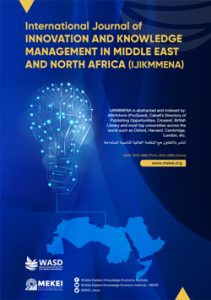 Purpose: This paper explores the factors and barriers to e-learning in Sudan from a digital divide perspective.
Purpose: This paper explores the factors and barriers to e-learning in Sudan from a digital divide perspective.
Design/methodology/approach: The paper is based on a mixed-method case studies approach. Employing an exploratory case study method, we explore the factors and barriers to e-learning and bridging the digital divide in Sudan and their ramifications on the development of higher education in Sudan. The paper employs the following models and theories from e-learning and the digital divide perspective: Technology Acceptance Model (TAM), Theory of Planned Behavior (TPB), and Theory of Reasoned Action (TRA). It does this through an overarching model termed the Unified Theory of Acceptance and Use of Technology (UTAUT). The paper studies the following factors from the above models and theories: e-learning performance expectancy, e-learning effort expectancy, e-learning social influence, e-learning facilitating conditions, price value, and behaviour intention.
Findings: The study shows that Sudan has excellent opportunities to develop through the e-learning sector, especially given recent global pandemics such as COVID-19. Nonetheless, there is a strong need to investigate factors such as Internet self-efficacy and price value for the development and growth of e-learning in Sudan.
Original contribution of the paper: The paper explores the role of e-learning and the digital divide in higher education development in Sudan. Previous work has studied the digital divide and higher education in other Middle East and North Africa (MENA) sub-regions and countries but not in Sudan; they also excluded the above-stated factors and barriers.
Research limitations/implications: The paper could have pursued further research with a larger sample size and used both exploratory and confirmatory factor analysis to further analyse Sudan’s current e-learning environment.
Practical implications: The paper’s practical importance is that it lays the ground for further investigation into the development of e-learning systems in Sudan. Considering the digital divide in Sudan, there is a need to evaluate the development and usage of e-learning systems in Sudan from an holistic perspective, shedding light on both the supply side and the demand side of how e-learning is developing and shaping higher education in Sudan.
Keywords: E-learning; Emerging Market; Learning Management System; Information System; Knowledge Management; Information and Communication Technology for Development.





